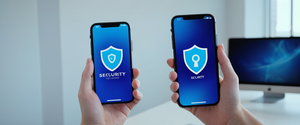
Virtual Private Networks have become indispensable tools in today’s interconnected digital landscape, offering users a sophisticated mechanism to protect their online activities, secure their data, and maintain control over their digital presence. As internet usage permeates nearly every aspect of modern life—from personal communication and financial transactions to remote work and entertainment—the reasons to use a VPN have multiplied significantly, transforming what was once primarily an enterprise security solution into a widespread necessity for individual users worldwide. This comprehensive analysis explores the multifaceted reasons why people across different demographics and use cases have adopted VPN technology, examining both the fundamental security benefits that drive adoption and the practical applications that make VPNs valuable in diverse scenarios. By understanding the comprehensive scope of VPN utility, users can make informed decisions about whether and how to incorporate VPN services into their digital security practices.
Foundational Understanding: The Technical Basis for VPN Necessity
Before examining the specific reasons to use a VPN, it is essential to understand what a VPN fundamentally accomplishes and how this technical capability translates into practical benefits for users. A Virtual Private Network establishes a secure, encrypted connection between a user’s device and a remote server operated by a VPN provider, effectively creating what experts describe as a protected tunnel through which all internet traffic passes. When you connect to a VPN, your device communicates with the VPN server first, which then forwards your requests to the wider internet, meaning that websites and online services you visit receive the VPN server’s IP address instead of your actual location information. This seemingly simple technical arrangement has profound implications for online security and privacy, as it simultaneously accomplishes multiple protective functions that were previously unavailable to individual users without significant technical expertise or enterprise resources.
For practical protection, see our secure browsing VPN feature.
The encryption employed by VPNs represents a crucial element of their protective capability, transforming readable data into coded information that remains incomprehensible to anyone who does not possess the appropriate decryption key. VPN providers implement sophisticated encryption standards, with many using AES-256, the same encryption standard employed by financial institutions and government agencies worldwide. This encryption process occurs in real time as your data travels through the internet, ensuring that every email you send, every password you enter, and every file you access remains protected from interception and monitoring. The encryption happens at multiple stages: when data leaves your device to connect to the VPN server, as data travels through the VPN tunnel, and when additional security protocols authenticate the connection and verify that you are communicating with a legitimate VPN server rather than an impostor attempting to intercept your traffic.
The technical architecture of how VPNs work involves a sophisticated handshake process that establishes a secure connection before any user data is transmitted. When you first connect to a VPN, the VPN client software on your device performs what security experts call a handshake with the VPN server, during which several critical security functions occur. This handshake utilizes hashing to authenticate that you are connecting to a legitimate VPN server and not a malicious intermediary, uses asymmetric encryption to exchange symmetric encryption keys, and establishes the foundation for all subsequent data protection. Popular asymmetric protocols used during this critical handshake include RSA and Diffie-Hellman, protocols with decades of security testing behind them. Once this initial handshake succeeds, symmetric encryption takes over to protect all data passing between your device and the VPN server, employing the most common cipher AES, specifically AES-256, which encrypts data with a key strength that makes brute-force attacks computationally impractical.
Privacy Protection: The Paramount Reason for VPN Adoption
Among all the reasons users choose to implement VPNs in their digital lives, privacy protection stands as the foundational motivation that resonates across different user demographics and geographic regions. Privacy, in the context of VPN usage, refers to the fundamental right to control what information about your online activities and personal communications becomes visible to other actors on the internet, including your Internet Service Provider, the websites you visit, advertisers tracking your behavior, and potentially government agencies conducting surveillance. Without a VPN, your Internet Service Provider possesses a complete record of which websites you visit, how long you spend on each site, the volume of data you consume, and patterns about your online behavior that could be profiled and sold to third parties or provided to government authorities if legally compelled. This visibility into online activity represents a fundamental privacy violation that most users find unacceptable once they understand its scope.
When you utilize a VPN, your ISP’s visibility into your online activities becomes dramatically limited. Your ISP can observe that you are connected to a VPN, which is visible in network traffic patterns, but cannot determine what websites you visit, what searches you perform, what content you stream, or which applications you use. This distinction represents a qualitative shift in privacy protection, transforming your ISP from having complete knowledge of your online behavior to having only the knowledge that you are using privacy protection technology. The implications of this change are significant for users in regions where ISPs have been documented selling anonymized but sometimes personally identifiable browsing data to advertisers, or where government requests for browsing history have become routine. A VPN effectively makes your browsing history inaccessible to your ISP, establishing a privacy boundary that many users find essential in an era of pervasive data collection.
Beyond ISP privacy, VPNs provide crucial protection against tracking by websites, advertisers, and other entities attempting to monitor your online behavior across the internet. Certain applications and websites employ sophisticated tracking technologies that silently monitor your online movements across multiple websites, collecting data about your browsing patterns, interests, and behaviors for the purpose of building detailed profiles used to target advertising at you. When you use a VPN, the IP address visible to these tracking systems belongs to the VPN server rather than your actual device, making it substantially harder for trackers to correlate your activity across different websites and build comprehensive behavioral profiles. While a VPN cannot eliminate all tracking—sophisticated fingerprinting techniques can sometimes identify users through browser characteristics and other methods—it substantially increases the friction and cost of tracking individual users, making targeted advertising campaigns less viable.
The privacy benefits of VPNs become particularly acute when considering the evolution of search engine and social media tracking, which has become increasingly comprehensive and sophisticated over the past decade. Even when using a VPN that hides your IP address, major search engines and social media platforms can still track your activity if you are logged into accounts with these services, as your account login provides them with your identity regardless of your IP address. However, a trustworthy VPN that does not log your activities prevents your ISP and other network-level observers from seeing which search queries you perform or which social media content you access, providing a meaningful layer of privacy protection even if it does not achieve complete anonymity. For users concerned about their browsing history being tracked, stored indefinitely, and potentially exposed in data breaches or through legal discovery processes, VPN usage represents an essential privacy measure that significantly reduces the digital traces of their online activities.
Data Security: Protecting Sensitive Information from Interception
While privacy focuses on who can observe your online activities, data security addresses the critical concern of preventing unauthorized parties from intercepting, accessing, or modifying the sensitive information you transmit across the internet. Sensitive data constantly flows across the internet as part of normal digital life: login credentials for banking and email accounts, financial transaction information, medical records and health information, work documents containing proprietary information, and personal communications with family, friends, and colleagues. Without encryption, this sensitive information travels across the internet in plaintext, meaning anyone positioned to intercept network traffic—whether a malicious hacker, an ISP employee, or a government agency conducting surveillance—can read this information as easily as reading a paper document. The consequences of such interception can be severe, ranging from identity theft and financial fraud to corporate espionage and personal blackmail.
The risk of data interception becomes particularly acute when using public Wi-Fi networks, which represent some of the most vulnerable internet access points available to users. Public Wi-Fi networks deployed in airports, hotels, cafes, and other public locations often lack adequate security measures, and anyone with basic networking knowledge can set up equipment to intercept traffic from devices connected to these networks. The vulnerability is compounded by the fact that attackers can create “evil twin” networks with names nearly identical to legitimate public Wi-Fi networks, tricking users into connecting to the attacker’s infrastructure rather than the legitimate network. Once a user connects to an attacker-controlled network, the attacker occupies the position of a man-in-the-middle, capable of observing all unencrypted traffic from the user’s device, capturing passwords, reading emails, intercepting financial transactions, and modifying content before it reaches the user. A VPN completely eliminates this vulnerability by encrypting all traffic leaving the user’s device before it reaches the public Wi-Fi network, rendering all communications incomprehensible to anyone monitoring the network.
The protection that VPNs provide extends beyond protecting against casual attackers on public Wi-Fi networks to defending against sophisticated cybercriminals and state-level adversaries who conduct targeted interception attacks. Cybercriminals operating credential theft services capture billions of usernames and passwords each year through various means, including malware infections, phishing attacks, and network interception. When credentials are stolen through network interception, the criminals often gain access to corporate systems that users have authenticated against over VPN connections, providing the attacker with elevated access privileges that can enable ransomware deployment or data theft. Organizations whose employees use strong encryption through VPNs dramatically reduce their vulnerability to credential-based attacks, as the interception attack vector becomes significantly more difficult to execute. For remote workers accessing company systems from various locations around the world, VPN usage transforms a highly vulnerable situation—accessing sensitive company resources over public or partially-trusted networks—into a secure scenario where data remains encrypted and company systems remain protected from unauthorized access.
Financial security represents another critical data security concern addressed by VPN usage, as financial transactions and banking information represent high-value targets for cybercriminals. When you access your bank account, purchase items online, or make any transaction involving payment information, a VPN ensures that your financial data remains encrypted and protected from interception. While many banking websites and shopping platforms employ their own encryption protocols (indicated by the HTTPS prefix in URLs), a VPN provides an additional layer of protection by encrypting the connection before data even reaches these websites, protecting your data from ISP interception and creating multiple layers of encryption defense. Additionally, a VPN protects your financial information from being correlated with your identity by network observers, meaning that even if attackers cannot decrypt your data, they cannot determine which financial transactions belong to which individual.
Medical information and health data represent another category of highly sensitive information that warrants VPN protection, particularly as healthcare increasingly moves online and patients access health information through web portals and telemedicine services. Health information is among the most personal and valuable data that individuals possess, worth significantly more on the black market than financial information because of its potential for blackmail and its utility for insurance fraud. When accessing health portals, scheduling medical appointments, or receiving telemedicine services, a VPN ensures that this sensitive health information remains encrypted and that observers cannot correlate your health information with your identity. For individuals with health conditions they prefer to keep private, this VPN protection becomes essential for maintaining the privacy of their medical status while still accessing necessary online healthcare services.
Bypassing Geographic Restrictions and Accessing Censored Content
A significant proportion of VPN usage worldwide relates to the ability to access content, services, and information that have been restricted based on geographic location, either through technological geo-blocking measures employed by websites and services, or through government-imposed censorship and content filtering. The internet was originally conceived as a global network with free flow of information, but in practice, governments, corporations, and other entities have imposed geographic restrictions on vast amounts of internet content, creating a fragmented global internet where the same service or content available in one country is completely unavailable in another. These geographic restrictions serve various purposes: streaming services like Netflix restrict their content libraries to specific countries based on licensing agreements, some governments block entire categories of content they deem harmful or threatening to their political interests, businesses employ geo-blocking to prevent price arbitrage, and various other entities use geolocation-based restrictions to control access and user experience.
VPNs provide a straightforward mechanism to circumvent these geographic restrictions by allowing users to appear as though they are connecting from a different geographic location than their actual location. When you connect to a VPN server located in a different country, websites and services observe only the IP address of the VPN server in that country, not your actual IP address, which means they perceive you as being located in the country where the VPN server operates. This capability enables numerous practical applications: travelers can access entertainment services from their home country while traveling abroad, expats can watch content specific to their home country’s entertainment services, students and professionals can access academic and business resources that may be geo-blocked in their current location, and individuals in censored regions can access information and services blocked by their governments. The practical impact of VPN-enabled geo-restriction circumvention extends beyond mere entertainment convenience to include access to essential services and information.
For individuals living in countries with severe internet censorship, VPN usage becomes not merely convenient but essential for accessing basic information and communicating freely. Numerous countries employ sophisticated internet filtering systems that block access to news websites, social media platforms, communication tools, and other information sources deemed politically threatening or destabilizing by the ruling government. China’s “Great Firewall” represents perhaps the most sophisticated example of nationwide censorship, employing deep packet inspection and other advanced techniques to block VPN usage within the country, yet users who successfully utilize properly configured VPNs can circumvent these restrictions and access global information sources. Similarly, Russia, Iran, Turkey, and numerous other countries restrict or ban VPN usage precisely because VPNs enable citizens to circumvent government-imposed information controls. For journalists, activists, and ordinary citizens in these countries who wish to access uncensored news, communicate privately without government surveillance, or simply view content their government has deemed inappropriate, VPN technology represents a critical tool for accessing information and exercising fundamental freedoms of speech and assembly that are otherwise unavailable to them.
Protect Your Digital Life with Activate Security
Get 14 powerful security tools in one comprehensive suite. VPN, antivirus, password manager, dark web monitoring, and more.
Get Protected NowThe ability to bypass geographic restrictions carries significant implications for business and professional applications beyond individual consumer entertainment use cases. Companies with global operations often need to access content, services, and resources that are only available in specific geographic regions, particularly when managing operations across multiple countries or supporting clients in different regions. Professionals working across borders frequently need to access banking services, legal resources, and business applications that may be geo-restricted to specific regions, requiring VPN access to maintain business continuity while traveling or relocating. Educational institutions increasingly restrict access to academic resources by geography, and students studying abroad or conducting research internationally may need VPN access to their home institution’s libraries and academic databases. For all these applications, VPN access to circumvent geographic restrictions represents a legitimate business need rather than merely entertainment convenience.
Securing Remote Work and Enabling Distributed Workforces
The explosive growth of remote work, dramatically accelerated by the COVID-19 pandemic, has created an enormous new category of VPN usage centered on securing connections between remote workers and corporate networks. Prior to widespread remote work adoption, most employees accessed company resources from within corporate office buildings connected to company networks behind physical firewalls and security perimeters, creating a security model where the network perimeter roughly aligned with the company’s physical locations. Remote work fundamentally disrupted this security model by requiring employees to access company resources from homes, coffee shops, co-working spaces, airport lounges, and hundreds of other locations on various internet networks, the vast majority of which lack the security protections of corporate networks. VPN technology provides the essential mechanism for extending corporate security practices to remote workers, creating encrypted tunnels that allow employees to securely access company resources regardless of their physical location or the security posture of the network they are connected to.
From a company security perspective, VPN usage by remote workers provides critical protection against data breaches that could compromise sensitive company information or customer data. When an employee accesses company resources without VPN protection over an insecure network, attackers positioned to intercept network traffic could potentially capture the employee’s credentials and gain access to company systems with the elevated privileges the employee possesses. Once inside company systems with valid employee credentials, attackers can move laterally to access additional systems, stealing proprietary information, customer data, or deploying ransomware that encrypts critical company systems. Security research suggests that over 80 percent of data breaches involve a human element, frequently stemming from remote access vulnerabilities, making VPN protection for remote workers not merely a convenience but a critical security imperative for companies seeking to protect their data. Organizations that mandate VPN usage for all remote access dramatically reduce their vulnerability to credential-based attacks and limit the damage that compromised credentials could inflict.
The business continuity implications of VPN-enabled remote work became starkly apparent during the COVID-19 pandemic, when companies forced to implement emergency remote work rapidly deployed VPN solutions to enable their workforces to continue functioning productively from home. Companies that successfully implemented VPN solutions allowing employees to securely access all necessary resources maintained business continuity despite offices being closed and employees working from residential internet connections of highly variable quality and security. For companies in industries where operational continuity is critical—financial services, healthcare, critical infrastructure operations—the ability to deploy VPN solutions that allow secure remote work has become essential business infrastructure comparable in importance to backup power systems and disaster recovery plans. The COVID-19 experience definitively proved that VPN technology enables modern organizations to operate effectively in distributed environments while maintaining security and productivity standards comparable to traditional office-based operations.
Beyond security and continuity, VPNs provide essential functionality for remote work by enabling employees to access internal company resources as though they were physically connected to the corporate network. Many company resources including internal websites, file servers, databases, and specialized applications are designed to only be accessible from within the company network or through VPN connections authenticated with company credentials. Without VPN access, remote workers would have no way to access these resources regardless of their need for them, making remote work impossible for any role requiring access to internal systems. VPN technology essentially extends the company network across geographic distance, creating virtual presence on the corporate network for remote workers that enables them to access the same resources and systems they would access if physically sitting at an office workstation. This capability has become so central to modern work that companies routinely describe VPN access as a basic requirement for remote employment, included in onboarding processes alongside email access and security training.

Prevention of ISP Tracking and Bandwidth Throttling
Internet Service Providers occupy a unique position in internet architecture, having technical visibility into essentially all internet traffic flowing through their network infrastructure and being among the few entities with intimate knowledge of users’ complete browsing histories at the network level. The business practices of certain ISPs have raised substantial privacy concerns, as they have been documented selling anonymized but sometimes re-identifiable browsing history data to advertisers, providing government agencies with user data in response to requests, and using data about user behavior to influence content delivery and service quality. Additionally, certain ISPs have engaged in practices of intentionally slowing down internet speeds for specific types of traffic—a practice termed bandwidth throttling—to either manage network congestion or to create “fast lanes” for content providers who pay for priority delivery. VPN usage provides a straightforward mechanism to prevent ISPs from engaging in these practices by rendering your traffic invisible to your ISP, who can only observe that you are connected to a VPN without being able to determine what specific activities you are engaged in.
Bandwidth throttling represents a particularly pernicious practice because it degrades the user experience for activities that require high bandwidth, such as video streaming, gaming, and large file downloads. When ISPs throttle bandwidth, they intentionally reduce the speed at which users can send or receive data, often implemented in ways that target specific types of traffic or services. Some ISPs have been documented throttling streaming video traffic from competitors to their own video streaming services, effectively creating paid prioritization schemes where content providers who pay for “fast lane” access receive faster delivery while competitors receive artificially slowed delivery. Others throttle torrenting traffic or gaming traffic to manage overall network congestion. For users experiencing throttling, a VPN addresses the problem by encrypting traffic and disguising its destination, preventing the ISP from determining what type of traffic is being transmitted and therefore preventing traffic-type-specific throttling. While VPNs cannot circumvent data cap-based throttling (where ISPs slow speeds after users exceed data allowances), they effectively prevent targeted bandwidth throttling based on traffic type or destination.
The use of VPNs to prevent ISP data collection and throttling has become increasingly important as ISP data practices have become more aggressive and consumer privacy concerns have intensified. Research has documented numerous instances of ISPs selling browsing history data to data brokers and advertisers despite privacy concerns, with the practice so widespread that the Federal Communications Commission briefly implemented rules in 2016 and 2017 (later repealed) that would have required ISPs to obtain explicit consent before selling subscriber data. While consumers theoretically can choose alternative ISPs to avoid ISPs with objectionable data practices, in practice most regions have extremely limited ISP choice, with many areas having only one or two viable providers, making VPN usage a practical solution for obtaining privacy protection that cannot be achieved through choice of ISP. For users whose only available ISPs engage in aggressive data collection and sharing practices, VPN usage becomes essential for protecting privacy that the ISP would otherwise compromise.
Protection Against Man-in-the-Middle Attacks and Network Eavesdropping
Beyond protecting against ISP surveillance, VPN usage provides essential protection against a category of attacks termed man-in-the-middle (MITM) attacks, where attackers position themselves between a user and the service the user is trying to access, becoming able to eavesdrop on communications and in some cases modify communications in transit. MITM attacks occur through various mechanisms: attackers might compromise network infrastructure routers to intercept traffic, create malicious Wi-Fi networks to attract users, perform DNS hijacking to redirect traffic to attacker-controlled servers, or exploit various network-level vulnerabilities to insert themselves into communications. Once an attacker has positioned themselves as a man-in-the-middle, they can capture all unencrypted traffic, potentially obtaining passwords, financial information, personal communications, and other sensitive data. MITM attacks represent a particularly serious threat in contexts like public Wi-Fi where attackers can easily create malicious networks and intercept user traffic.
VPN technology provides effective protection against MITM attacks by encrypting all data before it leaves the user’s device, ensuring that even if an attacker intercepts network traffic, they cannot read the encrypted data without possessing the decryption keys. This protection applies to all types of network eavesdropping: packet sniffing attacks where attackers capture network packets and attempt to read their contents, SSL stripping attacks where attackers attempt to downgrade encrypted connections to unencrypted versions, DNS hijacking attacks where attackers redirect DNS queries to attacker-controlled servers, and other network-level attacks all become ineffective against VPN-protected traffic because the data remains encrypted regardless of what the attacker does to the underlying network. For users concerned about network security—particularly those who frequently connect to public Wi-Fi networks—VPN usage represents the single most effective practical defense against network-level eavesdropping and MITM attacks.
VPN protection against MITM attacks depends critically on the trustworthiness and security practices of the VPN provider, because while a VPN protects against attacks from ISPs and other network-level observers, the VPN provider itself occupies the man-in-the-middle position relative to the user. When you use a VPN, you are essentially trusting the VPN provider to not eavesdrop on your communications, not intercept your data, and not inject malicious content into your traffic. This reality has important implications for VPN selection, as users must choose VPN providers with strong reputations for privacy protection, transparent privacy policies, and ideally third-party verification of their no-logging claims through independent audits. Fortunately, several VPN providers have undergone independent security audits that verify they truly do not log user activity and do not engage in practices that would compromise user privacy, providing users with verified assurance that they can trust these specific providers. For users who select a trustworthy VPN provider and maintain secure practices, VPN protection against MITM attacks is substantially effective.
Gaming and Streaming Use Cases
Beyond the foundational security and privacy benefits that apply broadly across VPN usage scenarios, VPNs provide specific advantages in specialized use cases including online gaming and entertainment streaming. The gaming use case highlights how VPN benefits extend beyond security into performance optimization and access expansion, as gamers use VPNs for multiple purposes: protecting their identity and location from other players attempting to launch DDoS attacks, improving connection performance by selecting optimal VPN server locations, accessing gaming content and services that are geo-blocked in their region, and preventing ISP-based DDoS mitigation that might interfere with gaming performance. Online gamers represent particularly attractive DDoS attack targets because enraged competitors or griefers often launch attacks against gamers during competitive matches to disconnect them from the game server, causing them to lose ranked matches or valuable gameplay progress. By using a VPN that masks their real IP address and routes gaming traffic through a VPN server, gamers effectively prevent attackers from determining their actual IP address and therefore prevent DDoS attacks targeting their specific network connection.
For entertainment streaming, VPN usage enables access to content libraries that are geo-blocked to specific regions, allowing users to access their home country’s entertainment services while traveling abroad, or allowing users in regions with limited content libraries to access content from regions with broader offerings. The economics of content licensing create situations where movie and television content is licensed separately in different countries, resulting in different content being available in different regions’ versions of services like Netflix, Disney+, and other streaming platforms. While streaming services have implemented measures to detect and block VPN usage in attempts to prevent geo-restriction circumvention, VPN providers have responded by continuously updating their infrastructure to provide access to streaming services, engaging in an ongoing technological competition between streaming providers implementing detection measures and VPN providers discovering ways around them. For users in regions with limited streaming content or for frequent travelers who wish to maintain access to their home country’s entertainment, VPN usage enables access to a substantially broader range of entertainment content than would otherwise be available.
Business and Commercial Applications Beyond Remote Work
While remote work represents the most obvious business application of VPNs, business VPN usage extends considerably beyond secure remote access to encompass site-to-site VPN connections that link multiple office locations together, cloud infrastructure security, and various specialized business applications. Site-to-site VPNs create permanent encrypted connections between company office locations, allowing employees at different offices to securely share resources and collaborate seamlessly across geographic boundaries. For companies with multiple offices spanning different cities or countries, site-to-site VPNs provide the secure networking infrastructure that allows all offices to function as a unified network while maintaining security protections across the internet links connecting them. Cloud infrastructure increasingly relies on VPN connections to securely connect on-premises systems to cloud-based resources and to manage administrative access to cloud infrastructure. Additionally, businesses use VPNs to protect sensitive business communications, access business resources while traveling, and prevent competitors from monitoring their network communications and business activities.
The cost-effectiveness of VPN-based networking compared to traditional private network infrastructure represents another significant reason businesses employ VPN solutions extensively. Historically, companies with multiple office locations would have leased expensive private circuits from telecommunications providers to connect their offices, incurring substantial monthly costs for dedicated connections. VPN technology allows companies to leverage low-cost internet connectivity to create secure private networks with encryption costs constituting a tiny fraction of the expense of traditional private circuits, making globally distributed company networks affordable for organizations of all sizes. This economics-driven shift toward VPN-based networking has enabled the rise of globally distributed companies and enabled remote work at scale, as the cost of providing VPN access to remote workers is trivial compared to the productivity benefits of flexible work arrangements.
Torrenting and Peer-to-Peer Activities
While torrenting encompasses legitimate applications including the distribution of open-source software, Linux distributions, and content released under creative commons licenses, many associate torrenting primarily with copyright infringement. Regardless of the legality of specific torrenting activities, users who engage in P2P file sharing recognize that the practice exposes their IP address to the other peers they are sharing files with, creating situations where copyright holders and their enforcement agents can potentially identify the user’s IP address and potentially take legal action. VPN usage provides effective protection for torrenting by masking the IP address shared with other peers, making it impossible for copyright holders to identify which specific household or internet connection is engaged in torrenting activity. VPN providers have responded to substantial demand from users who torrent by implementing P2P-optimized servers configured specifically for torrenting, featuring DNS leak protection and kill switch functionality designed to prevent accidental IP exposure during the torrenting process.
The use of VPNs for torrenting raises interesting legal and ethical questions, as VPN providers’ tolerance for torrenting varies substantially. Some VPN providers explicitly support and optimize for P2P file sharing, while others prohibit torrenting in their terms of service and may disconnect users they detect torrenting. This variation reflects different business philosophies about VPN usage: some providers see P2P traffic protection as a legitimate privacy use case applicable equally to legal and illegal torrenting, while others prefer to avoid association with copyright infringement by prohibiting torrenting regardless of the specific files being shared. For users who torrent legally, such as those sharing open-source software or independently-created content, VPN protection provides legitimate privacy benefits equivalent to the privacy protection VPNs provide for any other internet activity.

Anonymity, IP Masking, and Identity Protection
While privacy and anonymity are related concepts often used interchangeably, they possess important distinctions that affect how VPNs address different concerns. Privacy refers to control over what information about your activities others can observe, while anonymity refers to being unable to identify specifically which person or entity engaged in particular activities. VPNs contribute substantially to privacy by hiding your activities from observers, but they do not provide complete anonymity because the VPN provider ultimately knows which user account is associated with which VPN server and therefore which activities, and because sophisticated attack techniques can sometimes identify users through fingerprinting or other means despite IP address masking. Nevertheless, VPNs provide meaningful IP masking that prevents casual identification and significantly raises the technical bar for identifying users.
IP masking refers specifically to hiding your real IP address and replacing it with the VPN server’s IP address when accessing websites and online services. This capability has numerous practical applications: it prevents websites from recording your IP address and correlating it with your identity through IP geolocation databases, it prevents attackers and network observers from identifying your approximate physical location based on IP address geolocation, and it prevents targeted attacks on your specific IP address. For users concerned about targeted attacks, doxxing (where attackers obtain and publish identifying information), or stalking, IP masking through VPN usage provides substantial protective benefit by obscuring the IP address that could potentially be used to locate or target them. Gaming contexts frequently involve IP address sharing where competitors share each other’s IP addresses for potential malicious purposes, making IP masking particularly valuable for gamers concerned about network attacks from other players.
Cost Considerations and the Free VPN Question
While the benefits of VPN usage are substantial, practical adoption decisions must grapple with the financial cost of VPN services, which creates an important consideration: whether to use paid VPN services or rely on free alternatives. This question proves more complex than the price differential might suggest, because free VPN services typically employ business models that may compromise the privacy and security benefits that motivated VPN adoption in the first place. Free VPN providers cannot subsist on subscription revenue, so they must monetize their services through alternative means including displaying advertisements to users, collecting and selling user data to third parties, injecting tracking cookies into user traffic, and various other practices that directly undermine the privacy that VPN users seek to protect.
Research examining free VPN services has revealed numerous problematic practices: free VPNs sometimes employ weak encryption protocols that provide minimal security protection, some free services intentionally throttle connection speeds to pressure users into purchasing premium plans, others limit data usage with monthly caps that render them impractical for regular usage, and some have been documented selling user data to data brokers despite privacy claims. Additionally, free VPNs typically operate much smaller server networks than paid providers, meaning their servers become congested with too many users, resulting in poor performance and unreliable connections. The trade-offs inherent in free VPN usage are substantial enough that security experts generally recommend paid VPN services for serious privacy protection, reserving free VPNs for occasional limited use cases where serious security is not critical.
Paid VPN services, conversely, can invest substantially in infrastructure, security, and privacy protections because they derive revenue from subscription fees rather than through compromising user privacy. Leading paid VPN providers operate thousands of servers worldwide, employ strong encryption standards, maintain strict no-logging policies verified through independent audits, and implement advanced security features like kill switches that prevent data leakage if the VPN connection drops. Paid VPN services typically cost between $3-$15 per month depending on the provider and subscription length, with longer commitment periods offering reduced monthly costs. For users who value privacy and security protection, this cost represents a reasonable expense comparable to other security and privacy services, and far less expensive than the potential costs of identity theft, corporate espionage, or reputational damage that could result from inadequate online security.
Limitations and Realistic Expectations for VPN Protection
While VPNs provide substantial security and privacy benefits across numerous use cases, potential VPN users should understand the significant limitations of VPN technology and maintain realistic expectations about what VPNs can and cannot protect against. A common misconception about VPNs is that they provide complete anonymity and render users completely invisible online, an expectation that VPN providers’ marketing sometimes encourages but that does not align with technical reality. VPNs cannot prevent you from being identified through account logins—if you log into your Gmail account, Google knows your identity regardless of whether you are using a VPN, as your login credentials identify you. VPNs cannot prevent malware on your device from harvesting information about you, cannot protect against phishing attacks where you knowingly provide information to malicious actors, and cannot secure information once it has been exposed through social engineering or account compromise. Search engines and social media platforms continue to track your behavior and profile your interests based on your account activity even when you use a VPN.
Additionally, VPNs have important performance implications that users should be aware of when considering deployment. All VPN connections introduce some amount of latency (delay) into internet communications because data must travel through additional VPN infrastructure rather than taking the most direct route to its destination. This latency increase proves generally imperceptible for browsing and email, but can noticeably impact performance-sensitive activities like online gaming, large file downloads, or video streaming if the VPN server is geographically distant from the user or from the service being accessed. VPN connections also typically reduce bandwidth throughput somewhat compared to unencrypted connections, though high-quality paid VPN services minimize this reduction through server optimization and advanced protocols like WireGuard that balance security with performance. For users with bandwidth-limited connections or in regions with limited internet speeds, VPN usage might further constrain already-limited bandwidth in ways that make certain activities impractical.
VPN kill switches, which claim to automatically disconnect internet access if the VPN connection drops to prevent data leakage, often fail to work perfectly during critical scenarios like system reboot, permitting data to transmit unencrypted before the kill switch engages. This imperfection represents a meaningful security limitation for users who depend on kill switches to prevent any unencrypted traffic while a VPN should be active. Security researchers testing various VPN kill switches have found that almost all of them leak some unencrypted traffic during system reboots, with some VPNs continuing to work better than others, but none achieving perfect leak protection. For users with adversaries capable of detecting brief moments of unencrypted activity—such as users in countries with sophisticated internet surveillance—these kill switch imperfections might create security risks that could be exploited.
Choosing and Evaluating VPN Services
Given the proliferation of VPN services available to consumers—ranging from highly reputable providers with proven security track records to questionable services with minimal security or privacy protection—selecting an appropriate VPN service requires careful evaluation of various service characteristics and provider practices. Potential VPN users should prioritize providers with verified no-logging policies, ideally supported by independent security audits that verify the provider truly does not collect or store user activity data. Several leading VPN providers including NordVPN, Proton VPN, ExpressVPN, Surfshark, and others have undergone independent security audits by recognized cybersecurity firms that verified their no-logging claims and found no evidence of activity logging on their infrastructure. These verified no-logs VPNs provide substantially greater confidence that user privacy will be protected compared to providers making no-logs claims without third-party verification.
The jurisdiction in which a VPN provider is incorporated and operates carries important implications for its ability to protect user privacy, because VPN providers in certain jurisdictions face legal requirements to log user activity or provide user data to government agencies upon request. VPN providers based in privacy-friendly jurisdictions like Panama, Switzerland, Iceland, or Romania face fewer legal requirements to store and disclose user data compared to providers based in countries with extensive surveillance apparatus like the United States or the United Kingdom. While no jurisdiction provides perfect legal protection against all possible government demands, providers in privacy-friendly jurisdictions with strong data protection laws have substantially better positions to resist government demands for user data. Evaluating a VPN provider’s jurisdiction should form part of a comprehensive assessment of the provider’s ability to protect user privacy.
Additional evaluation criteria for VPN services include the size and geographic distribution of the server network, encryption standards employed, availability of advanced security features like kill switches and DNS leak protection, speed and performance optimization, customer support quality, and pricing transparency. A large server network with global geographic distribution enables users to find optimally-located servers for their needs, whether optimizing for speed or for accessing content available in specific regions. Encryption standards should include at minimum AES-256 with modern protocols like WireGuard or OpenVPN, representing the current industry standard for strong encryption. Kill switches and DNS leak protection prevent accidental data leakage if the VPN connection fails, providing important security assurances for users concerned about data protection. Customer support availability and responsiveness matter for users who encounter technical issues or have questions about service functionality, with leading providers typically offering 24/7 support through live chat.
Emerging Threats and Evolving VPN Needs
The cybersecurity landscape continues to evolve in ways that increase the importance of VPN usage across different threat scenarios and use cases. The rise of sophisticated ransomware-as-a-service operations that target businesses with custom ransomware has increased the consequences of corporate data breaches, making VPN protection for employee remote access even more critical for organizations seeking to defend against ransomware attacks. These ransomware operations specifically target remote access vulnerabilities including unprotected VPN credentials, making strong VPN authentication and security practices essential for enterprise cybersecurity strategies. Additionally, the growth of credential theft through information stealer malware and the resale of stolen credentials on dark web marketplaces has increased the value of preventing credential capture in the first place through VPN encryption that prevents interception.
Emerging threats from advanced persistent threat (APT) actors representing nation-states create scenarios where particularly high-value targets benefit from sophisticated VPN usage patterns including double VPN configurations and careful VPN server selection designed to prevent attribution of activities to specific countries. While most individual users do not face threats sophisticated enough to require double VPN protection, journalists operating in dangerous environments, activists conducting sensitive work in authoritarian countries, and corporate security professionals managing high-value assets increasingly recognize the value of layered protection through multiple VPN connections. VPN providers have responded by implementing double VPN features (sometimes called multi-hop) that route traffic through multiple servers in different countries, applying encryption multiple times and further obscuring the relationship between user activity and specific geographic locations.
The Indisputable Case for VPNs
The reasons to use a VPN extend across a comprehensive spectrum spanning fundamental security needs, privacy protection imperatives, access expansion capabilities, and specialized use cases addressing specific threats and scenarios. From the foundational perspective of protecting sensitive data from interception on insecure networks, to the critical need for encrypting remote work communications to protect company data, to the legitimate interest in preventing ISP monitoring and tracking, VPNs address genuine security and privacy concerns that affect internet users across all demographics and geographies. The evidence is overwhelming that VPN usage provides substantive benefits in protecting against common cybersecurity threats including man-in-the-middle attacks, ISP-based surveillance, DDoS attacks, and various other attack vectors that compromise internet users regularly.
Beyond security, VPNs provide individuals with expanded access to information and services that would otherwise be geographically restricted, benefiting not only entertainment consumers seeking global content access but also journalists, activists, and ordinary citizens in censored regions seeking to access uncensored information and maintain freedom of communication. For organizations managing distributed workforces, VPNs provide the essential infrastructure that enables secure remote work at scale while maintaining security and productivity comparable to traditional office environments. For remote workers and travelers, VPNs provide peace of mind and tangible protection when accessing sensitive services on untrusted networks.
The comprehensive case for VPN adoption rests on recognizing that in the contemporary internet environment, encryption and IP address masking represent not luxury features but baseline security measures necessary for protecting against the routine threats that internet users encounter. For users who value their privacy, security, and digital freedom, VPN usage represents a practical, affordable, and effective measure that substantially elevates their security posture and protects their fundamental right to privacy in digital communications. As internet threats continue to evolve and government surveillance intensifies in numerous jurisdictions, VPN technology remains among the most important security investments individuals and organizations can make to protect themselves in an increasingly hostile digital environment.






